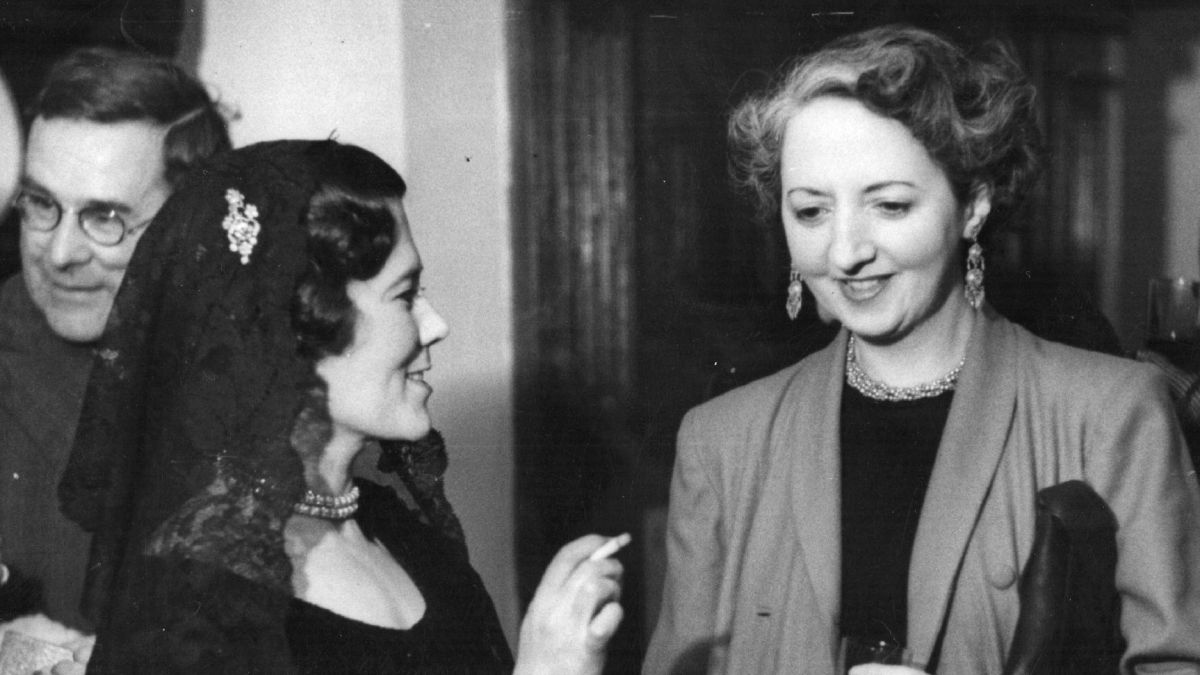What a treat it is for a change to read a book centred on an utterly villainous character with no redeeming qualities — and it’s even better that he’s funny too. The Unspeakable Skipton, published in 1959, introduces us to “Daniel Skipton, Englishman, resident in Bruges”. Skipton is a novelist, looks like a carrion crow, and claims to be a “Knight of the Most Noble Order of SS. Cyril and Methodius”.
He is a toad. He is toxic and terrible. “Shut up,” he tells a shopkeeper. “You tart,” he says to his landlady’s daughter. “Fat miser,” he calls the cousin (“Flabby Anne”) whose handouts he relies upon for income. Yes, Skipton is on his uppers. His latest novel has been rejected by his former publisher, a novel in which Skipton pillories “everyone who had ever insulted or injured him” — including the publisher. “To work on this book was perhaps the greatest pleasure [he] had ever known.” If all that were not a bad enough mark of his character, he even wears socks with individual toes.
Skipton reads as much like a great stage or screen performance as a literary figure — there’s something of Basil Fawlty or Alan Partridge in him and, like those men, he is often surrounded by people who are even worse than he is. Skipton needs a plan to make money, you see, and latches on to a group of English visitors to Bruges, headed by Dorothy Merlin, a verse dramatist whose plays sound even worse than Skipton’s novels. “I stand alone,” she declaims, adding without modesty, “That does not necessarily mean that I am better than others. That would not be for me to say.”
So Skipton sucks up to them, offering to “pay my formal respects to a great woman dramatist”, and seeks to freeload off them, such as taking them to a sex show that he can’t afford to go to himself. But he has another scheme. He knows a bit about art, and arranges with a local antique dealer to find a gullible patsy who will pay over the odds for a junk painting if Skipton can get a cut of the profits.
And so the players are wound up and set off. Back and forward they go, all centring round Skipton’s twin poles of desperation for money and his hatred for more or less everyone else in the world. He is driven by it: “Rage tore at him like the fox in the cloak and he adored its fangs.” He must maintain a façade of gentility and financial comfort while steering his new friends away from ever seeing his shabby rented room and — the pathetic, perfect detail — its “little line of washing”. We get some sober insight into Skipton’s torment too: it was not in him, we’re told, to like people; “he did not even like, though he admired, himself”.
As the story rolls on, there are hairpins and switchbacks, and at one point his publisher even gets a little conciliatory. “Why on earth don’t you come back to England?” he writes to Skipton. “You would at least get free medical services and free teeth to bite your friends with.” But he is too far in now. And although the ultimate outcome is not hard to predict, the way it comes about is twisty and satisfying.
• Read more book reviews and interviews — and see what’s top of the Sunday Times Bestsellers List
Skipton, we’re told in a brief author’s note, was inspired by Frederick Rolfe, the deeply eccentric author of the cult classic novel Hadrian the Seventh. But there’s a little of him, I suspect, in every author who is never quite satisfied with the acclaim bestowed upon them. The title echoes Saki’s The Unbearable Bassington, and there’s something of that book’s misanthropic glee here too.
Pamela Hansford Johnson was the author of almost thirty novels, and had a romance in her youth with Dylan Thomas before marrying the writer CP Snow. (It was widely agreed, according to her biographer, that she was the better novelist in the marriage.)
The poet Stevie Smith, with typical excess, claimed that Johnson and Emily Brontë were “the two great women novelists”. It would be more accurate to place her alongside other sharp, dark comic novelists of the mid-20th century: Barbara Pym, Muriel Spark, Barbara Comyns. Their work has all been widely reissued in recent years. Pamela Hansford Johnson deserves a full-blooded revival too.
The Unspeakable Skipton by Pamela Hansford Johnson (Hodder & Stoughton £8.99 pp240). To order a copy go to timesbookshop.co.uk. Free UK standard P&P on orders over £25. Special discount available for Times+ members
